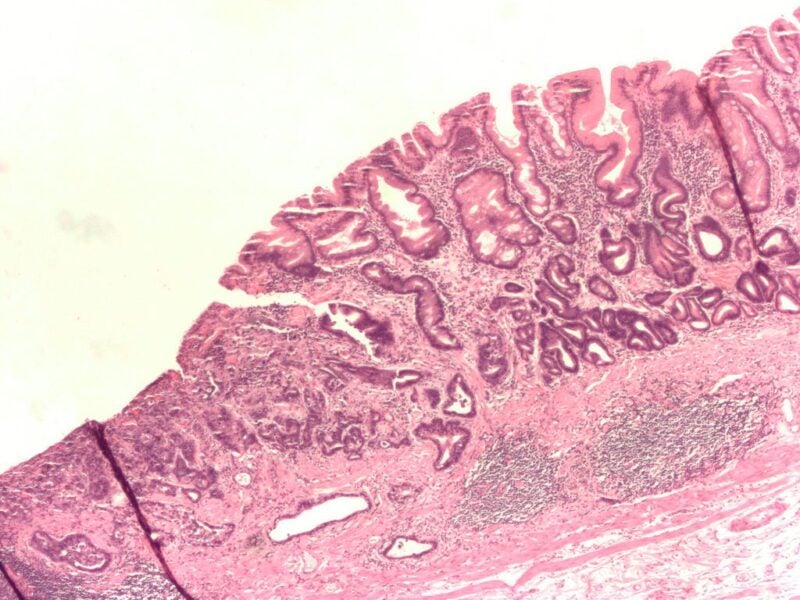
BioMed Valley Discoveries (BVD) has dosed the first subject in a Phase II clinical trial of ulixertinib (BVD-523) plus hydroxychloroquine (HCQ) in individuals with advanced gastrointestinal malignancies.
The prospective, multicentre, open-label, basket trial will evaluate the efficacy of the combination therapy in advanced gastrointestinal malignancy patients.

Discover B2B Marketing That Performs
Combine business intelligence and editorial excellence to reach engaged professionals across 36 leading media platforms.
All subjects recruited into the trial should have a mitogen-activated protein kinase (MAPK) activating mutation.
Each disease-based basket in the trial will be open to subject enrolment in two stages and include gastric, colorectal, oesophageal, pancreatic, and cholangiocarcinomas.
Being developed as a new anti-cancer drug, ulixertinib is a small molecule, extracellular, signal-regulated kinase (ERK) inhibitor.
It showed encouraging initial efficacy in tumour patients with alterations in the MAPK pathway, the company noted.

US Tariffs are shifting - will you react or anticipate?
Don’t let policy changes catch you off guard. Stay proactive with real-time data and expert analysis.
By GlobalDataBioMed Valley Discoveries president Brent Kreider said: “Combining an ERK inhibitor with an autophagy inhibitor is anticipated to take advantage of the finding that tumours may become addicted to autophagy for survival in context of MAPK inhibition.
“Given the favourable safety profile and efficacy seen with ulixertinib monotherapy, we believe that the combination with hydroxychloroquine has the potential to provide significant benefit to patients with advanced gastrointestinal malignancies.”
The latest trial is based on data from the Phase I clinical trial of the combination therapy concluded at the Huntsman Cancer Institute at the University of Utah in the US.
A Phase Ib trial previously assessed ulixertinib monotherapy as a new targeted cancer drug in subject cohorts with mutations in the MAPK pathway.
According to the trial findings, ulixertinib was found to have an acceptable safety profile. It also showed initial evidence of clinical activity against various RAS/MAPK pathway-driven tumours.





